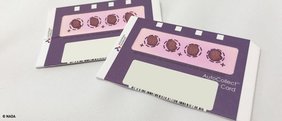
Die Nationale Anti Doping Agentur Deutschland (NADA) setzt die Dried Blood Spot (DBS)-Methode seit dem vergangenen Wochenende ergänzend zu klassischen Blut- und Urinkontrollen bei ihren Dopingkontrollen ein. Durchgeführt werden die DBS-Proben durch geschultes medizinisches Personal zur Abnahme von Blutproben. Ziel ist die Etablierung der minimal invasiven Probenart im Kontrollsystem der NADA. Das Institut für Biochemie der Deutschen Sporthochschule Köln bietet ein weites Spektrum an hochspezifischen Analysemöglichkeiten in diesem Rahmen an.
Die NADA sieht den DBS-Test als wichtige Weiterentwicklung des Dopingkontrollsystems und den Einsatz als ergänzende Möglichkeit zu den klassischen Dopingkontrollen als zielführend. Seit dem 1. September ist der Einsatz des DBS-Tests im Rahmen von Dopingkontrollen im gültigen neuen Technischen Dokument „Dried Blood Spot (DBS) for Doping Control“ der Welt Anti-Doping Agentur (WADA) verankert und jederzeit möglich. Damit sind die Ergebnisse der DBS-Proben nun auch justiziabel.
Die NADA hat bereits jahrelange Erfahrung mit der Durchführung von DBS-Kontrollen. Dank der Förderung durch das Bundesministerium des Innern, für Bau und Heimat (BMI) konnten seit 2015 drei Forschungsprojekte zum Einsatz der DBS-Technik in Zusammenarbeit mit dem Institut für Biochemie der Deutschen Sporthochschule Köln durchgeführt werden. Bei dem ersten Projekt wurde der Einsatz der Methode als präventive Maßnahme erstmalig erprobt. In einem Folgeprojekt prüfte die NADA den Einsatz des DBS-Tests als Zusatzmethode bei der Probenahme im Wettkampf. Im Jahr 2020 erforschte die NADA gemeinsam mit der Deutschen Sporthochschule Köln die Einsatzmöglichkeit des DBS-Tests im remote Verfahren während des ersten Lockdowns der COVID-19-Pandemie in Deutschland. Insgesamt nahm die NADA im Rahmen der drei Projekte 199 DBS-Proben von 199 Athletinnen und Athleten, die sich freiwillig an der Weiterentwicklung des Dopingkontrollsystems beteiligt hatten.
Die NADA plant auch weiterhin innovative Forschungsprojekte auf diesem Gebiet zur Entwicklung des Dopingkontrollsystems der Zukunft.
--English--
NADA IS NOW ROUTINELY USING THE DBS METHOD
Since this past weekend the National Anti Doping Agency of Germany (NADA Germany) is using the Dried Blood Spot (DBS) method in addition to classical blood and urine tests as part of its testing programme. The DBS samples are taken by trained medical personnel to collect blood samples. The objective is to establish the minimally invasive type of sampling in NADA Gernany‘s testing programme. The Institute for Biochemistry at the German Sport University Cologne offers a wide range of highly specific analysis options in this context.
NADA Germany views the DBS test as an important development of the testing programme and its use as a complementary option to classical doping controls as a beneficial addition. Since September 1st, the use of the DBS test in the context of doping controls has been anchored in the new technical document "Dried Blood Spot (DBS) for Doping Control" of the World Anti-Doping Agency (WADA) and is possible at any time. The results of the DBS samples are now litigable.
NADA Germany already has several years of experience with DBS controls. Thanks to funding from the Federal Ministry of the Interior, Building and Community (BMI), three research projects were carried out in cooperation with the Institute of Biochemistry at the German Sport University Cologne since 2015, which examined the use of DBS technology. In the first project, the use of the method as a preventive measure was tested for the first time. In a follow-up project, NADA Germany examined the use of the DBS test as an additional method for taking samples in competition. In 2020, NADA Germany, together with the German Sport University Cologne, researched the possibility of using the DBS test in a remote testing procedure during the first lockdown of the COVID-19 pandemic in Germany. As part of the three projects, NADA Germany collected a total of 199 DBS samples from 199 athletes who had voluntarily participated in the further development of the testing programme.
NADA Germany continues innovative research projects in this area to develop the future testing programme.